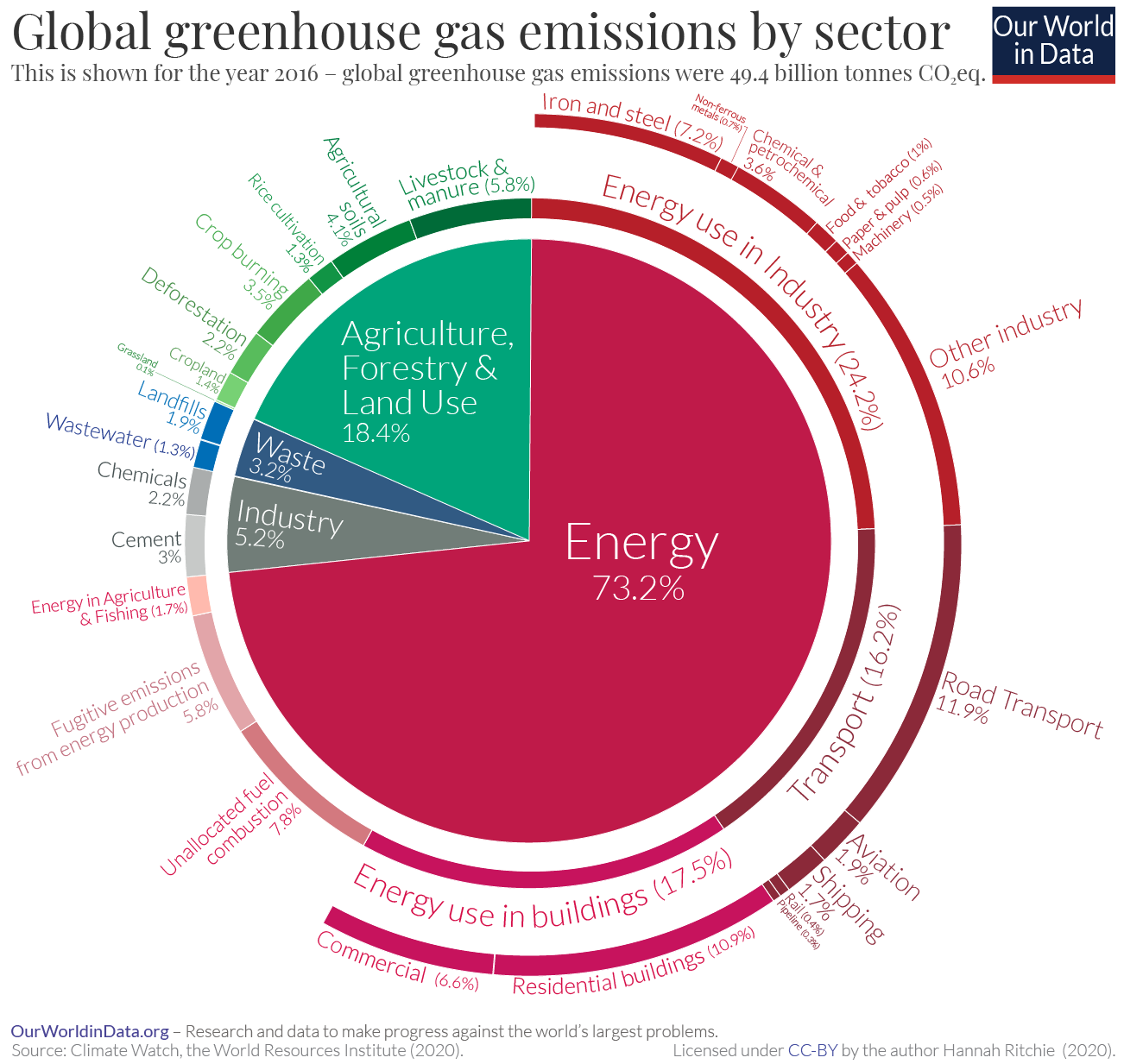Community climate resilience
…While [[climate change]] is a global problem, its effects are felt locally. And…
I trust the evidence of my own experience, the science and delegates from 196 nations of Earth that human-induced climate change is a real, urgent, and accelerating crisis that demands concerted, systemic action on the part of humanity. In a perverse reading of William Gibson’s quote that “The future is already here, it’s just not evenly distributed,” the most vulnerable among us have already been suffering the consequences (see also: The climate disaster is here), and the relative wealth and privilege which insulates people like me from those consequences won’t do so forever.
A 1912 newspaper article clearly explains the mechanism by which burning fossil fuels warms the earth:
The furnaces of the world are now burning about 2,000,000,000 tons of coal a year. When this is burned, uniting with oxygen, it adds about 7,000,000,000 tons of carbon dioxide to the atmosphere yearly. This tends to make the air a more effective blanket for the earth and to raise its temperature. The effect may be considerable in a few centuries.
Even ExxonMobil was a public pioneer climate change research in the 1970s before a strategic shift in the ‘90s toward climate change denial in which they adopted the strategy (and same PR firms) as big tobacco to mislead the public about the causes and magnitude of climate change.
We’re beyond the point at which we can avert disaster by merely reducing future emissions. Now, we also need to revert past emissions by pulling CO₂ out of the air. Here’s a deep but accessible primer on carbon capture (thanks to my friend Tony for the link).
What I’m doing about climate change
Environmentalist Bill McKibben suggests perhaps the most important thing we can do to prepare for climate change is live in a place with a high degree of social trust (and take steps to shore up that social trust as much as possible):
We’ve come through 75 years where having neighbors was essentially optional: if you had a credit card, you could get everything you needed to survive dropped off at your front door. But the next 75 years aren’t going to be like that; we’re going to need to return to the basic human experience of relying on the people around you. We’re going to need to rediscover that we’re a social species, which for Americans will be hard.

…While [[climate change]] is a global problem, its effects are felt locally. And…
…thrive, even as it remains realistic about the potential futures [[climate change]] is closing rapidly off. , and an essential strategy to reducing the impact of [[climate change]]. A counter-argument to degrowth is the idea that we…
…can help you stay calm in the face of the [[climate change|climate crisis]]. After all, as Susi Moser writes in _All…
…https://www.britannica.com/science/magical-thinking), for instance regarding [[climate change|Earth's planetary boundaries]]. ## Tips for developing an abundance mindset…
…especially the less privileged, in an impossible situation. ## Impact on Climate Change As Will Stronge (author of _Overtime: Why We Need a…
…disengagement theory to understand how people excuse their contributions to [[climate change]] and violating [[animal rights]]. ## Mechanisms - **Moral justification**: when we give…
…even more potent greenhouse gas than carbon dioxide contributing to [[climate change]]. [15% of US methane emissions come from MSW landfills.](https://www…
…cynical abdication of our responsibility to the future, as with [[climate change]] forcing future generations to pay the price for the cheap…
…invest the vast majority of their efforts in activities making [[climate change]] much worse. This is a common practice, when those who…
…Climate justice acknowledges the unequal distribution of harms caused by [[climate change]] and unequal distribution of benefit derived from those inducing it…
…is the kind of systemic failure we're seeing with [[climate change]]. Each country on Earth is incentivized (through economic competition with…
…prone to water shortages that will only get worse as [[climate change]] accelerates. And fertilizer can be harmful to birds, as well…
…and philosopher of existential risk Nick Bostrum saying that unchecked [[climate change]] might be "a giant massacre for man" but only "a…